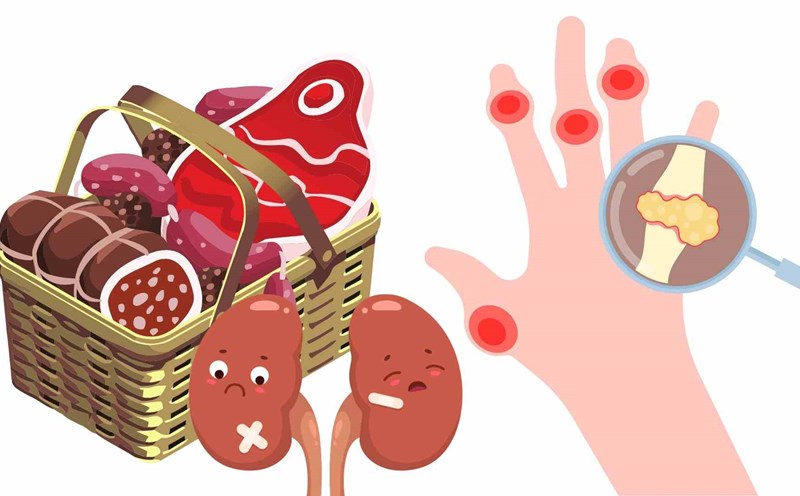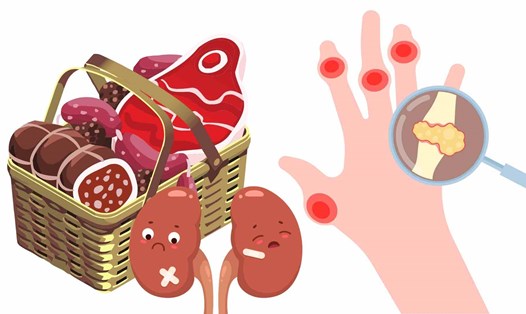According to nutritionist Dr. Robert H. Shmerling - Harvard University (USA), many people only detect the disease when they have complications such as gout, kidney stones or chronic kidney failure, while regular tests can completely help detect early and control effectively.
First of all, testing for uric acid in the blood is the most basic step to assess the risk of gout and purine metabolism disorder. A normal value is usually between 3.5-7.2 mg/dL in men and 2.6-6.0 mg/dL in women. If the result is higher than this level, the doctor may prescribe additional in-depth tests to determine the cause.
In addition, kidney function testing includes serum createdinin (BUN) and especially renal globular filtering (eGFR), the gold standard to assess the kidney's ability to filter blood. eGFR decline often warns of early kidney damage, even if the patient does not have obvious symptoms.
Another important test is a general urine analysis, which helps detect protein, blood or urate crystals early, a warning sign of kidney disease or kidney stones forming. People with a history of increased uric acid, obesity, diabetes, and high blood pressure should do these tests at least twice a year.
Dr. Shmerling emphasizes: Early detection of abnormalities in the kidneys and uric acid allows adjusting diet, water intake, salt loss and weight control, simple but extremely effective measures to protect the kidneys in the long term.











